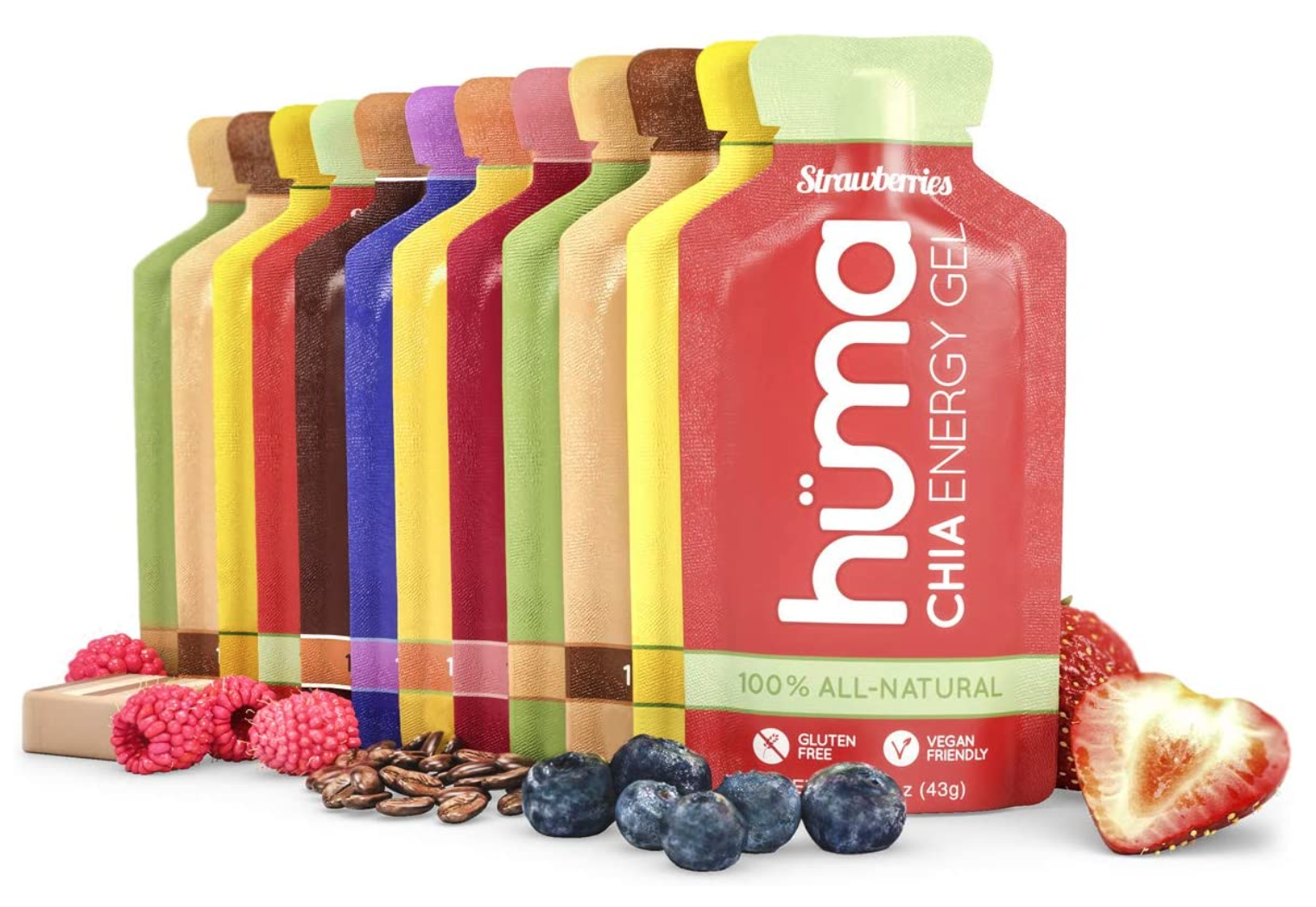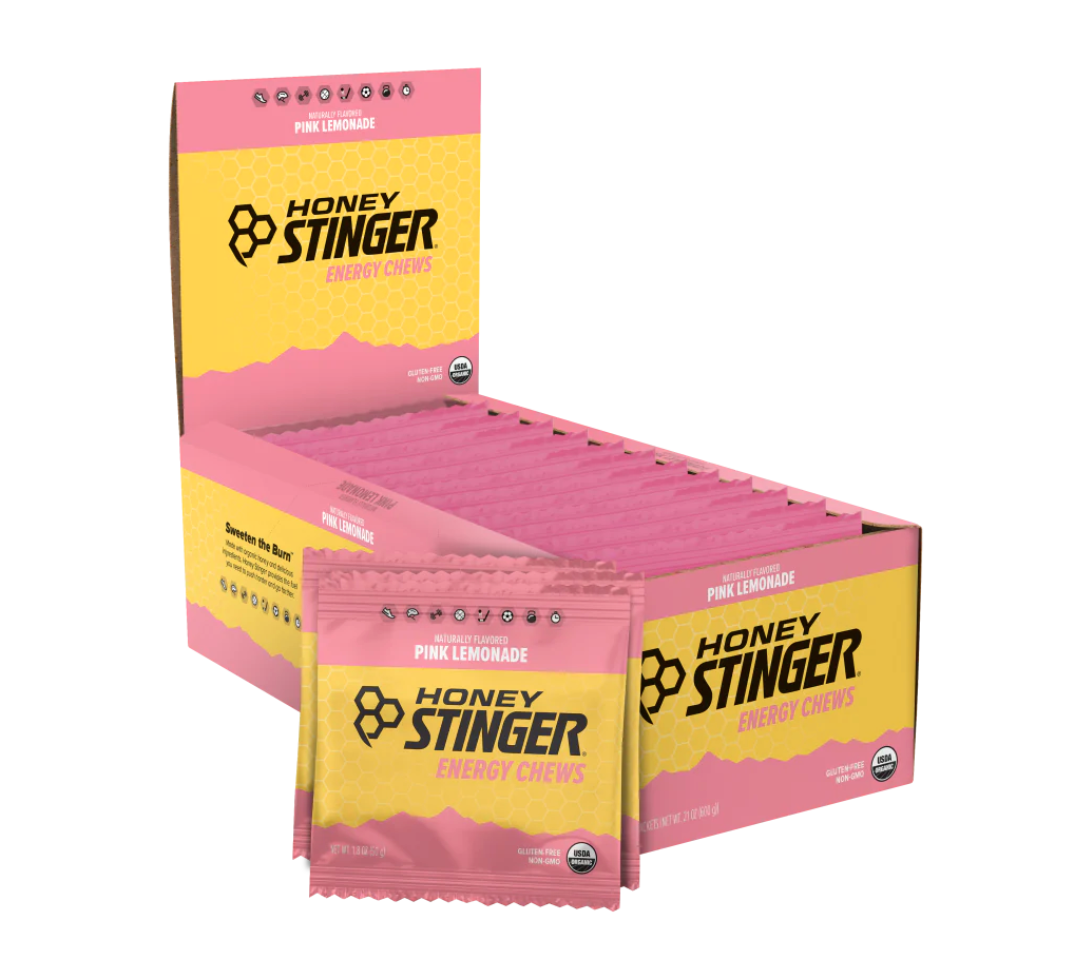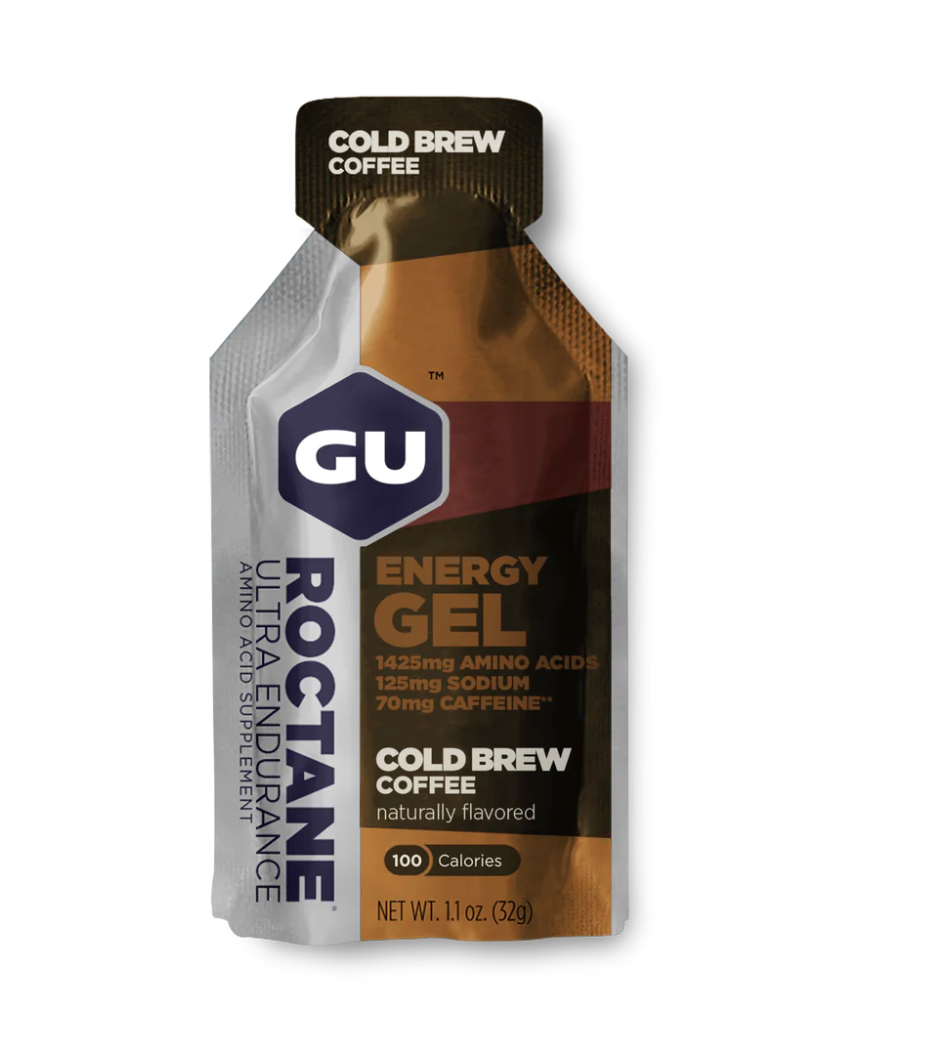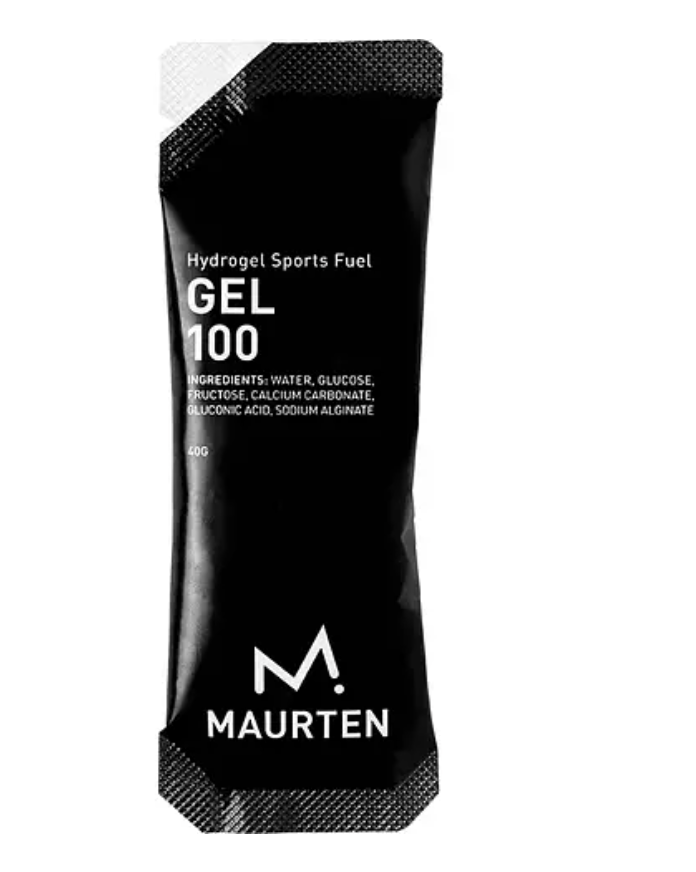Scan the crowd at the starting line of any long-distance race, and you’ll learn that no get-up is complete without a fanny (or pockets) filled with goos and chews. These tummy-filling carry-alongs aren’t just fashion fodder. The proper fuel can help you meet your race-day goals—so long as you eat the right things in the right quantities.
Wait, do I need to eat during a race?
Whether or not your race would be helped by a mid-run bite depends on the race’s length, as well as your preferences and body. If you’re doing a 5k or 10k you don’t need mid-run grub.
“You need to exercise for about 75 minutes before you need to consider a mid-workout snack,” says dietitian and strength coach Albert Matheny, RD, CSCS, COO of ARENA Innovation Corp and co-founder of SoHo Strength Lab in New York City. Generally, he explains, that’s how long it takes for the body to use up glycogen stores. That said, the higher percentage of max intensity you give, the quicker your body will use up your carbohydrate stores. Meaning, if you’re going all out on a race, you may need to re-fuel more quickly.
After the 75-minute mark, you’re going to want to continue eating once every 30 to 40 minutes, for the duration of the race, says fitness and nutrition expert Jeff Cunningham, official running coach for BPN.
Okay, what should I eat during a race?
Put simply, some well-tolerated quick-digesting carbohydrates and a lil bit of sodium are your best bet, says Cunningham. The reason you’re opting for quick (or simple) carbohydrates is that they’re easier to metabolize than complex carbohydrates, so your body can more easily use them as energy, he explains.
You aren’t trying to replace the exact amount of calories you’ve burned or the stored carbohydrates you’ve already used for fuel, says Matheny. You just need enough to keep you going. “You’re generally looking to consume 100 to 200 calories of quick carbohydrates for every hour that the race lasts,” he says. Consuming more calories than that at a time can cause gastrointestinal distress.
You should also aim to ingest 500 to 750 milligrams of sodium per hour to maintain healthy hydration levels and electrolyte balance, says Cunningham. (Though, if temps are warm, you may need to bump that up to 800 to 1200 mg of sodium per hour).
So where should I get those quick carbs and sodium?
This may come as a surprise, but this is one time you probably don’t want to reach for “real” foods. “Real foods often do not have readily available sources of energy that you need during a race,” says Cunningham. You usually need to digest and absorb the nutrients in real foods before they can power you up, he explains, and their more complex nature can cause GI distress during a high-intensity race.
Luckily, the market is awash with gels and goos, sports drinks and chews that are designed to give you energy ASAP. “Some of the more popular gels include Huma, Spring Energy, Maurten, GU, PowerGel, to name a few,” says Cunningham. Most of these contain about 100 calories per serving, 25 grams of carbs, and at least 100 milligrams of sodium. Certain products also contain caffeine, which can be a welcome burst of energy towards the later miles.
While these are all formulated with easy-to-digest carbs and sodium, your body will likely tolerate some better than others, Cunningham says. That’s why he recommends testing them out and finding the brands and products that agree best with you. More specifically, he recommends testing them out during training.
The adage “nothing new on game day” has stuck around for a reason, says Matheny. “Whatever you have consistently eaten during your training runs is exactly what you should do on race day,” he says. Just like you have to train your legs to handle the miles, you have to train your gut to metabolize fuel while you move. And you’ll want to know how your body reacts to a particular product: Some people get cramps if they go too heavy on the fiber, or get the runs if they consume chemicals and additives. If that happens to be true for you, it’s something you’ll want to learn about yourself before race day.
Our favorite race-day fueling options

Huma Chia Energy Gel — $30.00
$30 for a variety 12-pack
If your stomach doesn’t handle the dextrose and maltodextrin in most traditional gels, you might want to give Huma a try. The all-natural chia seed–based formula is typically easier on the digestive system, using brown rice syrup to give you carbs. Plus, the seeds offer a little bit of texture, which some runners like.

Honey Stinger Energy Chews — $32.00
$32 for a box of 12
If you prefer a chew over a goo, Honey Stinger has some of the best-tasting options. (We’re partial to pink lemonade and cherry blossom.) Chews can come in handy to parcel out your fuel over time—rather than taking in 100 calories all at once, you can have just one chew, wait a few minutes, then have another. Or stick one in your cheek to slowly suck on.

Gu Roctane Energy Gels — $62.00
$62 for a box of 24
When you’re racking up serious miles (especially looking at you, ultra-runners), sometimes you need an extra boost. Gu’s line of Roctane Energy gels includes sodium for better hydration, amino acids for happier muscles, and caffeine for a quick hit of energy.

Maurten — $4.00
$3.90 for a single-serving
If you’re someone who wants to fuel like the pros, you might check out Maurten. The hydrogel tech behind these goos brings the carbs and electrolytes straight to your intestines, making it easier to digest higher concentrations. It also makes for a thicker consistency. Caffeine and non-caffeine versions are available.
Okay, so, do you need to drink during a race?
It depends. “Just like food, whether or not you need to hydrate during a race varies among individuals depending on body size and composition and sweat patterns,” says Danine Fruge, MD, ABFP, medical director at Pritikin Longevity Center in Florida. The length and location (think: climate, terrain, humidity) of the race matter too, she notes.
The American College of Sports Medicine recommends drinking five to 12 ounces of fluids every 15 to 20 minutes during a marathon. Though “if your sweat rate is low that may be too much,” Dr. Fruge says.
Usually, an easy way to tell if you are adequately hydrated is that your urine is a light color and not dark yellow. But if you’re mid-race you likely aren’t stopping to pee—and if you are, it’s probably in a portapotty—which makes it impossible to tell. So instead, make sure you’re drinking water as soon as you’re thirsty. “Being thirsty is a sign you’re already dehydrated, so you want to make sure you’re drinking when that symptom pops up,” says Matheny.
What fluids should you drink, exactly? Usually, water is fine. “But water alone may not be the best strategy for people that sweat a lot,” according to Dr. Fruge. Sports drinks and electrolyte mixes can help the body uptake the water more easily. (Plus, many are super tasty.)
“Just be sure to read the labels carefully to avoid unnecessary dyes, artificial sweeteners, and chemicals,” says Dr. Fruge.
What you eat and drink before the race matters, too
For long runs and big races, you typically want to eat breakfast two and a half to three and a half hours prior to the gun going off, says Cunningham. Exactly how much you eat during your morning meal will vary. For a marathon, you’ll want to ingest 600 to 750 calories, while for a half marathon, half that amount will probably suffice.
“You’ll want to avoid foods that are too high in fat and protein as they can be hard to digest,” Cunningham says. “Instead, you want to eat a meal with carbohydrates and protein in the 4:1 range.” A bagel with peanut butter and honey, or a bowl of oatmeal with a banana and a dollop of peanut butter are both good examples, he says.
Oh, and don’t forget to drink water the morning of and the night before. “Aim to drink 20 to 25 ounces of fluids two hours prior to the race,” says Cunningham. If you normally add electrolytes to your pre-run refreshment, go ahead and mix in some into your breakfast bevvy to support your hydration levels, he says.
Our editors independently select these products. Making a purchase through our links may earn Well+Good a commission.
